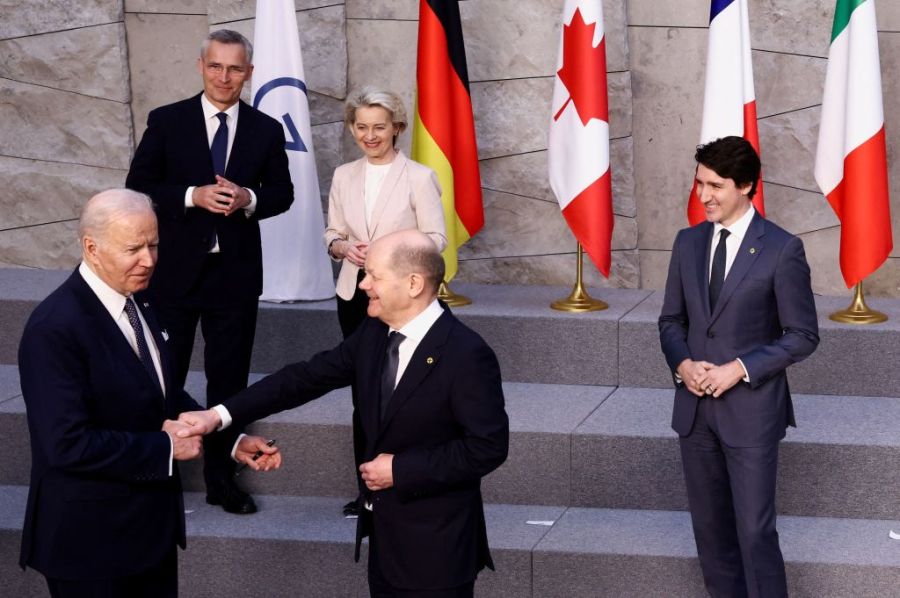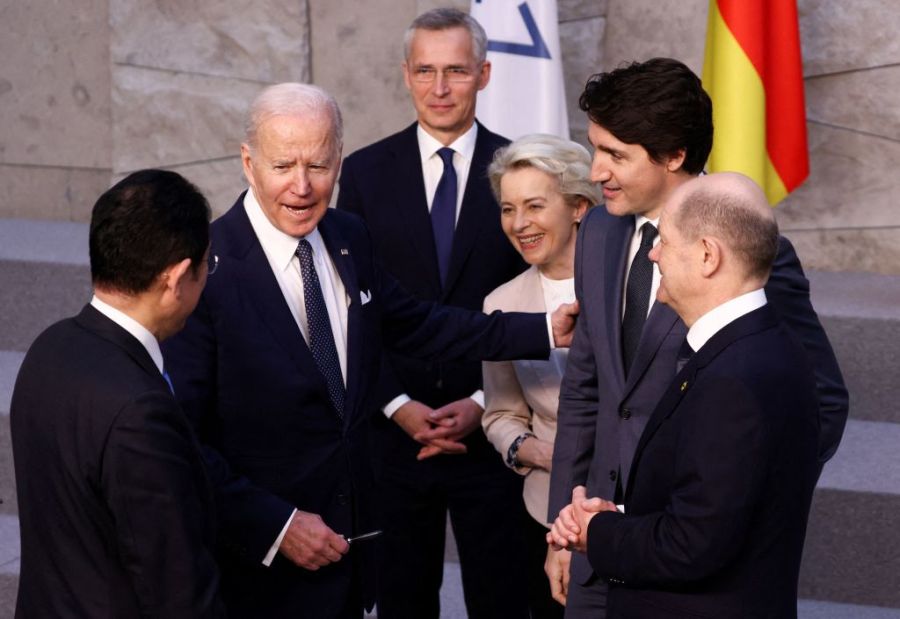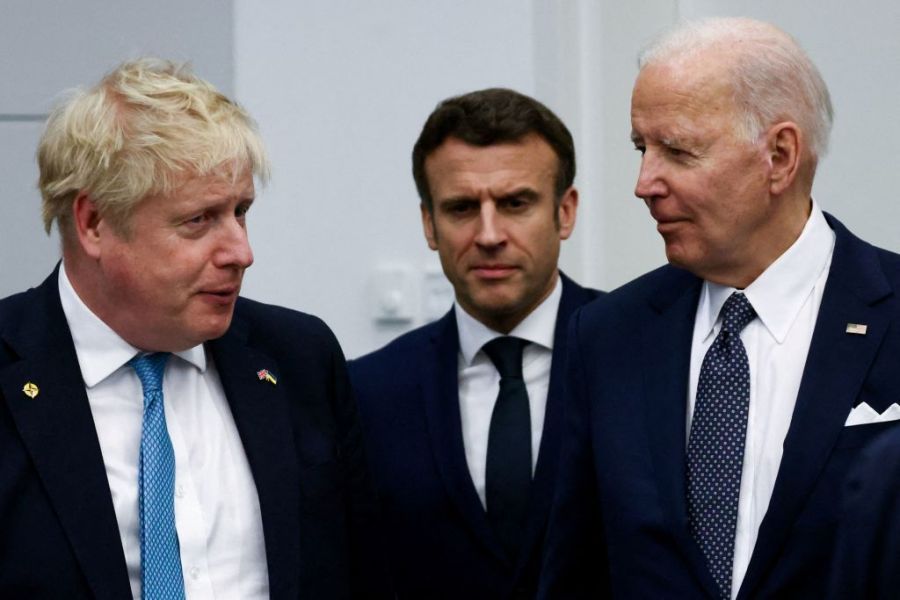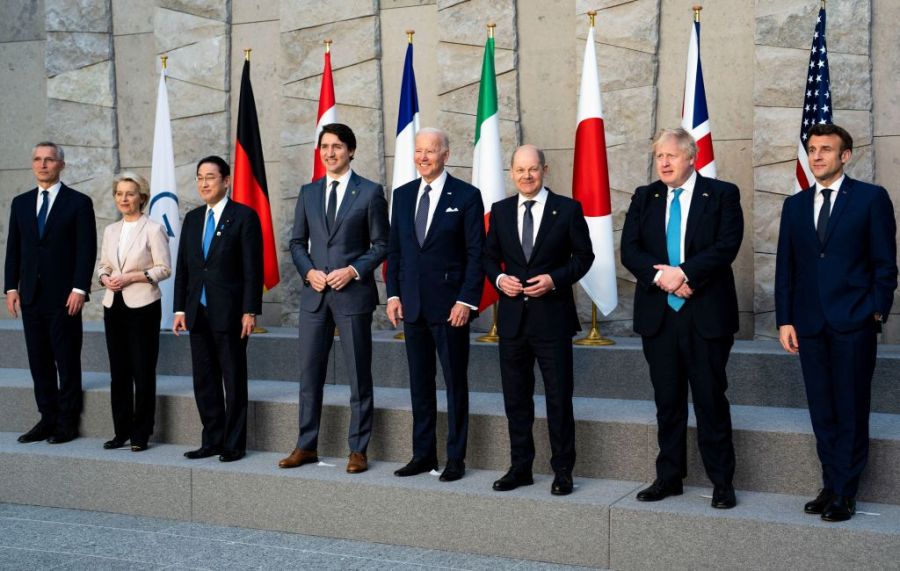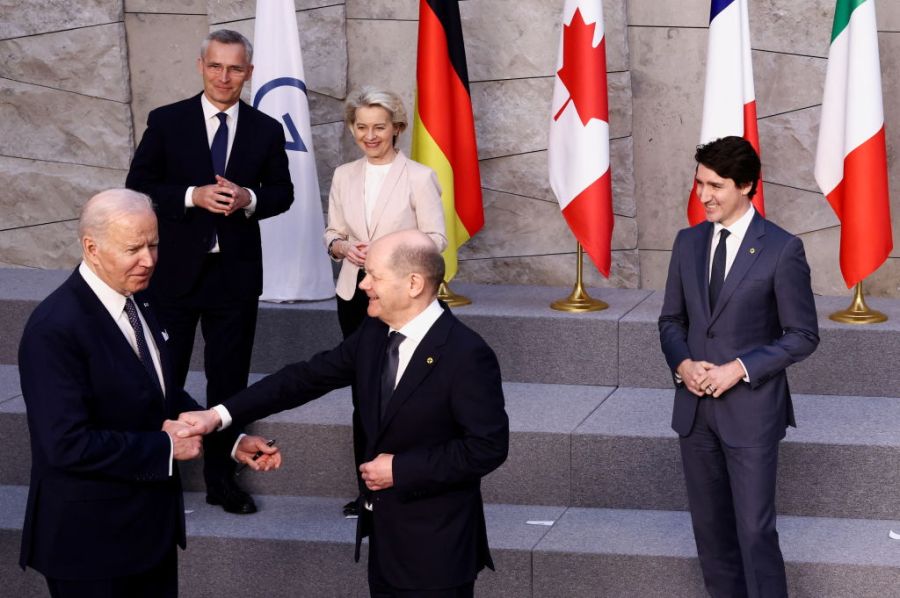BRUSSELS (NewsNation) — President Joe Biden said NATO was more united than ever over the Russian invasion of Ukraine as the allies introduced expanded sanctions on Russia, targeting members of the country’s Parliament and the central bank’s gold reserves.
Speaking of Russian President Vladimir Putin, Biden said, “He didn’t think we could sustain this cohesion” at a Thursday press conference.
Biden and world leaders gathered in Brussels for a trio of summits in response to the Russian invasion, seeking new ways to limit the economic and security fallout from the conflict.
NATO countries and other allies have imposed harsh sanctions against Russia, crippling that country’s economy. Still, the EU has refrained from taking the same steps as the U.S. in banning oil and natural gas from Russia. Other worries remain as the war has stretched into its fifth week.
Biden said he believes Putin will alter course after the NATO meetings Thursday.
“Sanctions never deter. The maintenance of sanctions. The maintenance of sanctions. Increasing the pain and the demonstration is why I asked for this NATO meeting today,” Biden said. “To be sure that after a month we will sustain what we are doing, not just next month, the following month but for the remainder of this entire year. That is what will stop him.”
National security officials from Washington to Warsaw are increasingly worried that Putin might deploy chemical, biological or even nuclear weaponry.
“The nature of the response would depend on the nature of the use,” Biden said of the U.S. response if Russia were to use chemical weapons.
Biden said earlier this week that the possibility of chemical weapons use by Russia was a “real threat.”
Biden’s national security adviser, Jake Sullivan, said the allies would consult on how to respond to “potential contingencies” of that sort.
NATO Secretary-General Jens Stoltenberg declined Thursday to discuss whether such a strike is a red line that would draw the alliance into war with Russia. “I will not speculate beyond the fact that NATO is always ready to defend, to protect and to react to any type of attack on a NATO allied country,” he said.
NATO allies opened a trio of summits with a sober warning from Stoltenberg that the alliance must boost its defenses to counter Russia’s invasion of Ukraine and “respond to a new security reality in Europe.”
Stoltenberg commented as he called to order a NATO summit focused on increasing pressure on Putin over the assault on Ukraine while tending to the economic and security fallout spreading across Europe and the world.
“We gather at a critical time for our security,” Stoltenberg said, addressing the leaders seated at a large round table. “We are united in condemning the Kremlin’s unprovoked aggression and in our support for Ukraine’s sovereignty and territorial integrity.”
Ukrainian President Volodymyr Zelenskyy addressed the day’s first meeting, where he called for “military assistance without limitations.” He pleaded for anti-air and anti-ship weapons, asking, “Is it possible to survive in such a war without this?”
“It feels like we’re in a gray area, between the West and Russia, defending our common values,” Zelenskyy said during the video address. “This is the scariest thing during a war — not to have clear answers to requests for help!”
While the West has been largely unified in confronting Russia after it invaded Ukraine, there’s wide acknowledgment that unity will be tested as the costs of war chip away at the global economy.
The bolstering of forces along NATO’s eastern flank, almost certainly for at least the next five to 10 years if Russia is to be effectively dissuaded from encroachment, will also put pressure on national budgets.
Four new NATO battlegroups, which usually number between 1,000 and 1,500 troops, are being set up in Hungary, Slovakia, Romania and Bulgaria.
At the same time, Washington increased its humanitarian assistance by welcoming 100,000 Ukrainian refugees and providing an additional $1 billion in food, medicine, water and other supplies.
Biden arrived in Europe as most Americans want the U.S. to enforce a no-fly zone over Ukraine, even if doing so would draw NATO into war, according to a new NewsNation/Decision Desk HQ poll.
Nearly 70% of those surveyed somewhat or strongly approve of the U.S. enforcing a no-fly zone over Ukraine, compared to about 30% who somewhat or strongly disapprove. Only 10% of respondents strongly disapprove of the idea.
Despite such overwhelming support of the idea, however, a retired Air Force commander advises against it.
“The no-fly zone is a great concept but in execution, it’s a little bit more difficult,” Maj. Glenn Ignazio said Thursday said on “The Donlon Report.”
Ignazio says a no-fly zone would mean direct combat, in that American and NATO aviators would be shooting at and killing Russians.
“It’s easy to say we want a no-fly zone but in actuality, you’re deploying U.S. forces and U.S. aviators in harm’s way,” Ignazio said.
The NewsNation poll also shows Americans still don’t approve of the job the president is doing. But the mood of the country is its most hostile and aggressive yet against Russia, backing new sanctions.
Biden promised voters that he had the experience to navigate a complicated international emergency like the one unfolding in Europe and his trip will be the latest test of that proposition.
You can read the full NewsNation poll here.

